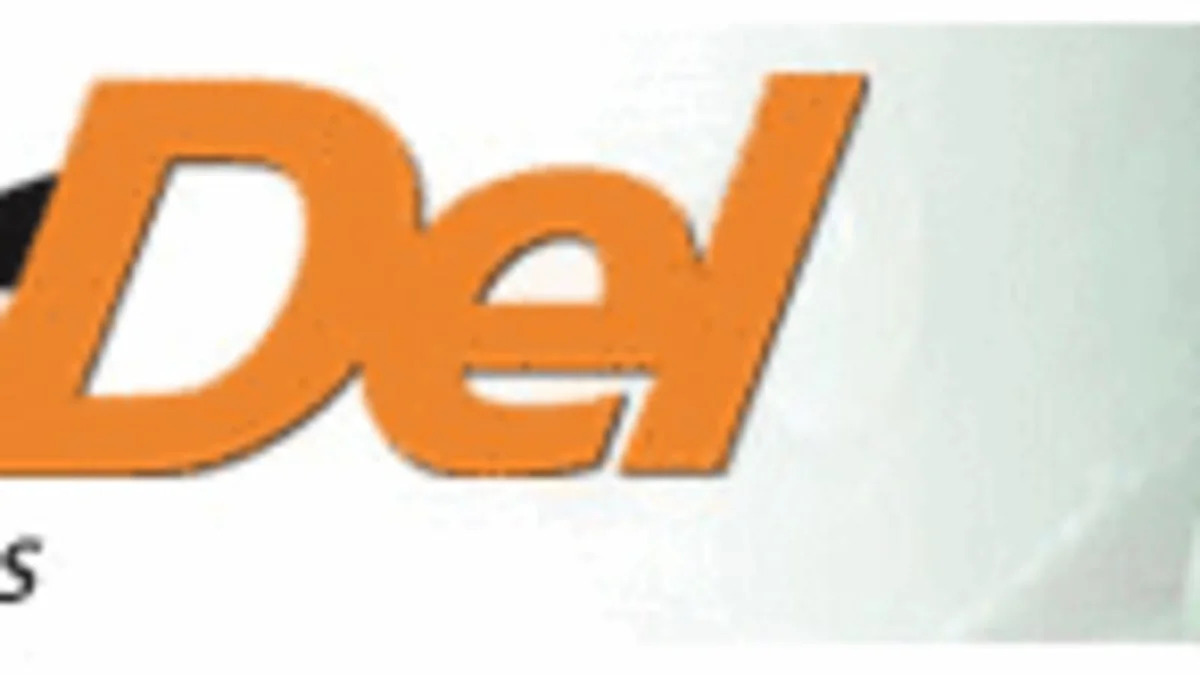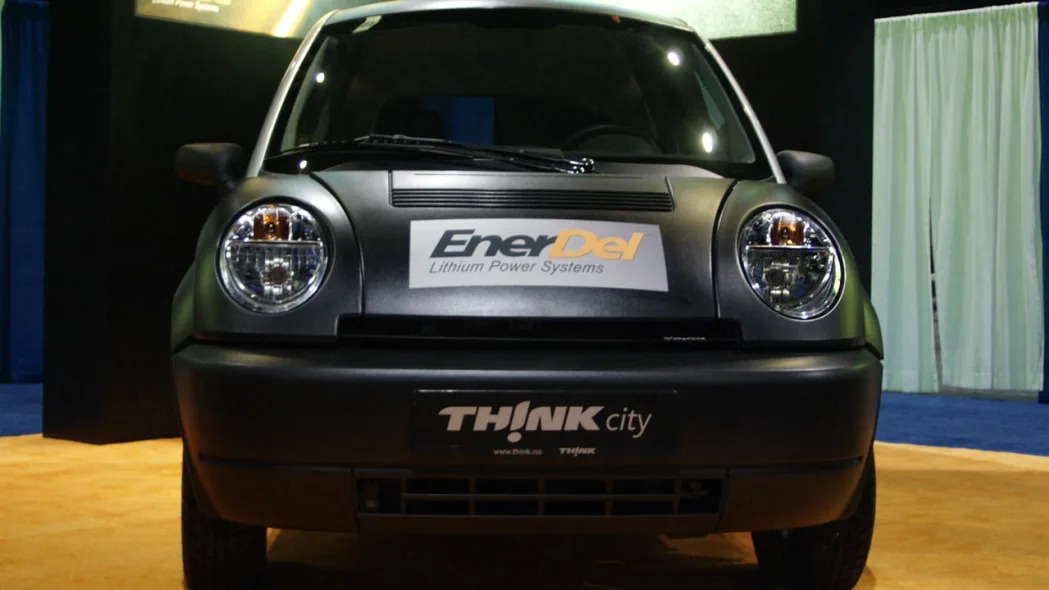[Source: Ener1]
Advanced Li-ion Battery Maker Applies for $480 Million in Federal Loan Funds to Accelerate Output for Next-Generation Auto Industry
Low-Interest Funds Would Help Grow Domestic Production of Crucial Systems for Plug-In Vehicles, Bolster U.S. Competitiveness
NEW YORK, Jan. 2 /PRNewswire-FirstCall/ -- Advanced lithium-ion battery manufacturer Ener1, Inc. (NASDAQ:HEV) has applied for $480 million in low-interest loans under a new federal program to spur development of the next generation of U.S. fuel-efficient vehicles.
"We are very pleased to be able to participate in an initiative that will help strengthen U.S. energy security, radically reduce greenhouse gases, and sharpen the competitive edge of American producers of fuel-efficient vehicles," said Ener1 Chairman and CEO Charles Gassenheimer. "A special federal lending program to incentivize next-generation auto and components manufacturers is exactly what is needed at this juncture to help regain market share for the U.S. in this crucial industry."
EnerDel, Ener1's lithium-ion battery subsidiary, applied for the funds under the Advanced Technology Vehicle Manufacturing Incentive Program (ATVMIP), which is administered by the U.S. Department of Energy (DOE). The $25 billion program is designed to enable U.S. auto companies and their suppliers to build or retool manufacturing facilities in order to improve the overall corporate average fuel economy (CAFE) of the American automotive industry.
"Advanced lithium-ion battery technology is a basic need for every automaker in the world today, and that need will grow steadily," said Gassenheimer. "Building a strong U.S. supply chain in this rapidly emerging industry is a top priority to maintain competitiveness vis-a-vis foreign manufacturers that have already invested very heavily in this linchpin technology."
EnerDel is the first and currently the only advanced lithium-ion automotive battery manufacturer in the U.S. EnerDel's manufacturing facilities are based in Indianapolis and Noblesville, Indiana. If granted, the funds will enable EnerDel to double manufacturing capacity to produce 600,000 hybrid electric vehicle packs per year at its existing plant by 2011, and to build a second larger plant capable of producing battery packs for up to 1.2 million hybrid electric vehicles by 2015. It is anticipated that the projects would create more than 1,300 new jobs.
Using DOE data, Ener1 estimates batteries produced at these facilities each year could save the U.S. economy as much as $600 million at the gasoline pump and eliminate up to one billion tons of carbon emissions annually.
The loans would be secured by project assets, and DOE is required by law to monitor progress closely to ensure the funds are used efficiently and effectively. If approved, the loan's interest rate, estimated to be less than 4 percent per annum, would be equal to the cost of funds to the U.S. Treasury Department for comparable obligations over a period of 25 years or the projected life of the project, whichever is shorter. DOE would have first lien on all assets acquired with the funds.
"A critical new industry is taking shape before our eyes," said Gassenheimer. "Europe and Asia have committed vast resources to build production capacity, while the U.S. is starting to fall behind. We have the technology, but we lack domestic production capacity. Failure to develop the lithium-ion automotive battery industry would be tantamount to exchanging dependence on foreign oil for dependence on foreign-made batteries."
EnerDel has developed a process for producing high-performance lithium-ion batteries using proprietary chemistry and a flat-cell design that maximizes power, reliability and longevity. EnerDel also specializes in software and systems integration to customize complete battery systems for installation into commercial vehicles.
Ener1 has successfully raised $200 million to date in the equity capital markets, but acknowledges federal assistance is necessary for Ener1 to accelerate its production capacity to be able to meet the U.S. auto industry's current forecasts for hybrid and electric vehicles, and remain competitive in a rapidly evolving global marketplace.
"Our business model suggests that for every $1 of capital investment, we can realize $4 to $6 of annual revenue, depending on product mix," Gassenheimer said. "With this revenue stream, we will be able to repay the loan on a timely basis and will help maintain the competitiveness of the automobile manufacturing industry in the U.S."
The ATVMIP was established under Section 136 of the Energy Independence and Security Act of 2007. Congress appropriated funds for the program in the fall under the Continuing Resolution; those funds are separate and distinct from the bailout loan funds approved by the White House for the Detroit 'Big Three' automakers in December. ATVMIP loan applications for the first of three stages of the program were due December 31. Applications under the next stages are due at the end of the first two quarters of the current year.
Safe Harbor Statement:
Certain statements made in this press release constitute forward-looking statements that are based on management's expectations, estimates, projections and assumptions. Words such as "expects," "anticipates," "plans," "believes," "scheduled," "estimates" and variations of these words and similar expressions are intended to identify forward-looking statements. Forward-looking statements are made pursuant to the safe harbor provisions of the Private Securities Litigation Reform Act of 1995, as amended. These statements are not guarantees of future performance and involve certain risks and uncertainties, which are difficult to predict. Therefore, actual future results and trends may differ materially from what is forecast in forward-looking statements due to a variety of factors. All forward-looking statements speak only as of the date of this press release and the company does not undertake any obligation to update or publicly release any revisions to forward-looking statements to reflect events, circumstances or changes in expectations after the date of this press release.
About Ener1, Inc.:
Ener1 develops and manufactures compact, high performance lithium-ion batteries to power the next generation of hybrid and electric vehicles. The publicly traded company (NASDAQ:HEV) (NASDAQ:-) (NASDAQ:News) is led by an experienced team of engineers and energy system experts at its EnerDel subsidiary located in Indiana. EnerDel has developed proprietary battery systems based on technology originally pioneered with the assistance of the Argonne National Lab.
Ener1 is seeking to become the first company to mass-produce a cost-competitive lithium-ion battery for hybrid and electric vehicles. Demand for battery solutions is being driven by a need to reduce dependence on oil as well as growing concern about vehicle emissions. In addition to the automobile market, applications for Ener1 lithium-ion battery technology include medical, military, aerospace, electric utility and other growing markets.
Major shareholders of Ener1 include Ener1 Group, Inc., a privately held, global investment and advisory firm, and ITOCHU Corporation, a Japanese trading company and distributor of manufacturing equipment essential to lithium-ion battery production. ITOCHU has annual revenue of approximately $90 billion and offices in more than 80 countries. Ener1 has also received funding from a growing number of institutional investors.



Sign in to post
Please sign in to leave a comment.
Continue